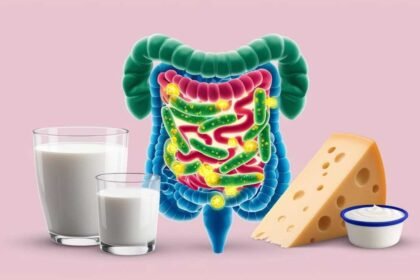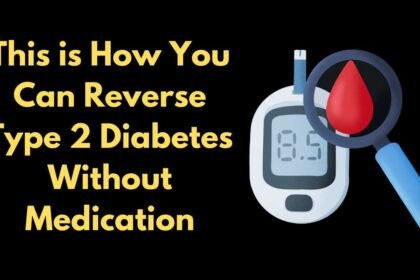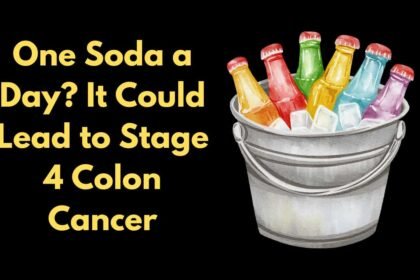Intermittent fasting (IF) has gained popularity as a dietary strategy for weight loss and improving metabolic health.
Known for its potential to reduce the risk of type 2 diabetes, cardiovascular disease, and Alzheimer’s, IF continues to be a favored lifestyle choice for many.
However, emerging research highlights a potential downside: slower hair growth. Two recent studies provide insight into how IF impacts hair regrowth in both humans and animals, shedding light on the underlying mechanisms and raising questions about its broader implications.
The Science Behind Hair Growth and Intermittent Fasting
Hair growth is a complex process involving hair follicle stem cells (HFSCs). These specialized cells play a crucial role in transitioning hair follicles from a dormant to an active state, enabling hair regrowth.
However, HFSCs are sensitive to oxidative stress, a condition exacerbated during fasting periods when the body switches from utilizing glucose to burning fat for energy.
A study published in Cell explored this phenomenon in mice subjected to intermittent fasting. The researchers implemented two fasting patterns: an 8-hour feeding window followed by 16 hours of fasting (16:8) and alternate-day fasting (ADF).
Control mice, with unrestricted access to food, displayed significant hair regrowth within 30 days. In contrast, mice on IF diets experienced only partial hair regrowth even after 96 days.
This slower regeneration was linked to the inability of HFSCs to adapt to oxidative stress, ultimately leading to programmed cell death (apoptosis).
Human Implications: Clinical Observations
To explore whether these findings extend to humans, researchers conducted a small clinical trial involving 49 healthy young adults.
Participants following an 18-hour fasting regimen exhibited an 18% reduction in hair growth speed compared to those consuming a regular diet.
Although the effects were less pronounced than in mice, the study underscored a similar vulnerability of human HFSCs to fasting-induced oxidative stress.
Dr. Bing Zhang, the senior author of the study, noted that differences in metabolic rates and hair growth patterns between mice and humans contribute to the varying severity of outcomes.
While humans showed slower but sustained hair regrowth, the findings highlight the potential for adverse effects on HFSCs during extended fasting periods.
Mechanisms of Hair Follicle Stress During Fasting
The study revealed that during fasting, adipose tissue releases free fatty acids, which accumulate near hair follicles.
HFSCs lack the necessary mechanisms to metabolize these fatty acids efficiently, leading to a buildup of harmful reactive oxygen species (ROS).
These ROS trigger oxidative stress, damaging HFSCs and hindering their ability to activate and support hair regrowth.
Interestingly, epidermal stem cells, which maintain the skin’s protective barrier, were unaffected by fasting.
This resilience is attributed to their higher antioxidant capacity, suggesting that enhancing HFSCs’ antioxidant defenses could mitigate fasting-related hair growth inhibition.
Nutritional Interventions and Future Research
The study proposed potential remedies to counteract the negative effects of fasting on HFSCs. Topical application of vitamin E and genetic enhancement of antioxidant capacity improved HFSC survival and hair regeneration in mice.
These findings open avenues for developing targeted interventions to support hair growth during fasting.
Registered dietitian Monique Richard emphasizes the importance of optimal nutrition in maintaining healthy hair, regardless of dietary patterns.
She advocates for nutrient-dense foods over supplements with excessively high levels of biotin or other nutrients, which can disrupt overall nutritional balance.
A balanced diet, tailored to individual needs, remains key to supporting hair and overall health.
Expert Opinions on the Findings
Medical professionals have weighed in on the study’s implications. Dr. Jennifer Cheng, an endocrinologist, highlighted the importance of understanding the potential side effects of IF, particularly for individuals using it as a weight loss strategy.
Dr. Hans J. Schmidt, a bariatric surgery expert, noted that hair loss during rapid weight loss is common across various dietary approaches.
He emphasized the need for further research to explore the independent effects of IF on HFSCs and potential dietary modifications to minimize hair loss.
Balancing the Benefits and Risks of Intermittent Fasting
While intermittent fasting offers numerous metabolic benefits, the findings of these studies underscore the importance of considering its potential drawbacks.
Hair growth is just one aspect of the broader physiological changes induced by fasting. As researchers continue to investigate the impact of fasting on other stem cell types and tissue regeneration, individuals practicing IF should remain mindful of their unique nutritional needs and health goals.
Practical Tips for Supporting Hair Health During IF
For those following an intermittent fasting regimen, here are some tips to minimize potential hair growth issues:
- Incorporate Antioxidant-Rich Foods: Foods high in antioxidants, such as berries, nuts, and leafy greens, can help combat oxidative stress.
- Consult a Nutrition Expert: Work with a registered dietitian to ensure your dietary intake meets your body’s needs during fasting periods.
- Stay Hydrated: Proper hydration supports overall cellular health, including HFSCs.
- Choose Balanced Meals: Focus on meals rich in protein, healthy fats, and essential vitamins to support hair and skin health.
- Avoid Over-Supplementation: Stick to natural food sources for nutrients instead of relying heavily on supplements.
Conclusion
Intermittent fasting remains a powerful tool for improving metabolic health, but its effects on hair growth highlight the importance of a balanced approach.
While slower hair regrowth may not deter many IF practitioners, understanding the underlying mechanisms and potential remedies can help mitigate these effects.
As researchers continue to explore the intricate relationship between fasting and stem cell biology, individuals can make informed choices that align with their health and wellness goals.












